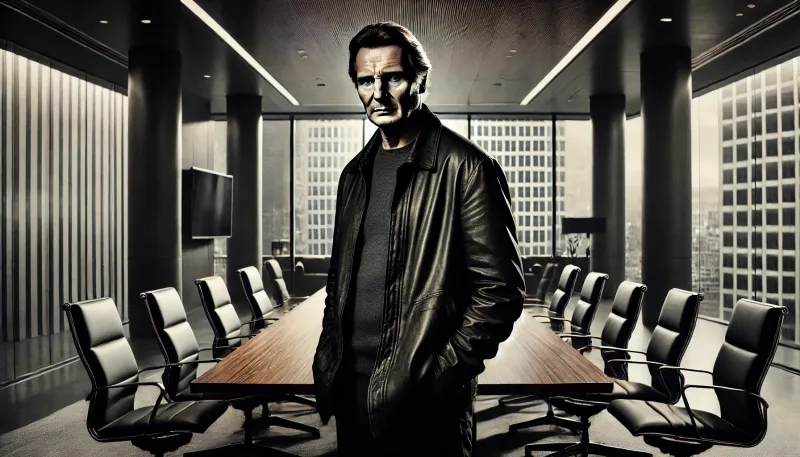Could Jigsaw from Saw Survive the Boardroom? Evaluating His CEO Potential
Could Jigsaw from Saw succeed as a CEO? His creativity and strategy shine, but trust issues, terror tactics, and lack of employee safety would make his leadership a corporate horror show.
When it comes to evaluating unconventional candidates for a leadership role, one could argue there’s no one more unconventional than Jigsaw from the Saw franchise. Known for his elaborate “games” that test the moral fibre of his victims, Jigsaw, or John Kramer, is a divisive figure. But what if this twisted mastermind were handed the reins of a company? Could he trade traps for spreadsheets and torture chambers for boardrooms? Let’s break it down.
Communication Skills: The Art of Cryptic Messaging
Jigsaw is a master communicator—if you’re into ominous videotapes and creepy puppet spokesmen. His ability to convey complex instructions (albeit terrifying ones) is unmatched. However, his penchant for riddles and cryptic messages might frustrate a workforce that just wants straightforward directions. Imagine a team meeting where your quarterly goals are presented as a deadly escape room.
Verdict: 5/10 – Effective, but exhausting.
Business Mind: Strategic or Sadistic?
Jigsaw is undeniably strategic. He meticulously plans every detail of his “games,” leaving little to chance. This level of foresight and preparation would be an asset in business. However, his obsession with “teaching lessons” might derail his focus from actual company goals. CEOs are supposed to maximize profits, not teach the CFO a lesson in empathy by locking them in a reverse bear trap.
Verdict: 4/10 – Great planning skills, questionable priorities.

Good Ideas Man: Creativity Galore
If there’s one area where Jigsaw would excel, it’s in creativity. The man could turn a paperclip and a rubber band into a life-or-death scenario. His knack for out-of-the-box thinking could lead to innovative solutions in product design or process improvement. But at what cost? Employees might be too scared to share feedback on his ideas.
Verdict: 8/10 – Creative genius, but at the expense of morale.
Trustworthy? The Ultimate Dilemma
Trust is the cornerstone of leadership, and this is where Jigsaw falters. His entire modus operandi involves betrayal, manipulation, and life-altering tests. While his intentions are rooted in forcing people to appreciate life, his methods would shatter trust within a team. A trustworthy CEO builds people up; Jigsaw, quite literally, tears them down.
Verdict: 1/10 – Trust and Jigsaw do not belong in the same sentence.
Interest in Himself or His Employees?
Jigsaw claims he’s helping his victims learn the value of life, but it often feels more like a self-serving philosophy. As a CEO, this obsession with “teaching” could alienate employees who just want to do their jobs without fearing for their lives. On the flip side, his personal involvement in each game shows dedication—an admirable trait in a leader.
Verdict: 4/10 – Dedicated, but for all the wrong reasons.
Violence or Harassment: Red Flags Everywhere
This one’s a no-brainer. A CEO’s role is to foster a safe and productive environment, not to terrorize their workforce. Jigsaw’s history of physical and psychological torment would make even the worst office tyrant look like a saint. HR would quit on day one If they could escape of course.
Verdict: 0/10 – Absolutely unacceptable.
Could He Pull It Off?
On paper, Jigsaw has some of the skills needed to lead a company: strategic thinking, creativity, and a commitment to its vision. However, his methods are so extreme that they overshadow any potential benefits. Could he successfully run a business without terrifying his employees or landing the company in legal trouble? Highly unlikely.
Overall Ranking 2.2/10
The boardroom is no place for death traps. Stick to the movies, John Kramer.
Final Ranking: 2.2/10 – A Nightmare CEO
Jigsaw’s meticulous planning and creativity give him a slight edge, but his lack of trustworthiness, penchant for violence, and inability to prioritize employees’ well-being make him wholly unsuitable for a leadership role.




![Could Walter White Run a Company? Unlikely CEO [Breaking Bad Edition] post image](/content/images/size/w800/2024/11/DALL-E-2024-11-25-20.30.04---A-character-resembling-the-iconic-Heisenberg-persona--a-middle-aged-man-with-a-bald-head--glasses--a-goatee--and-wearing-a-black-hat-and-a-black-leath.webp)

